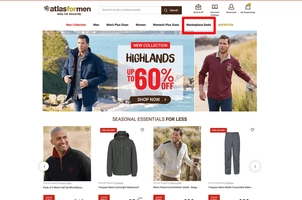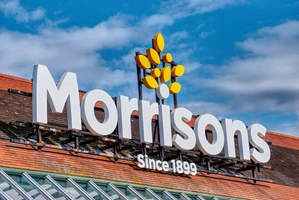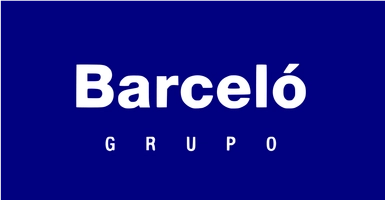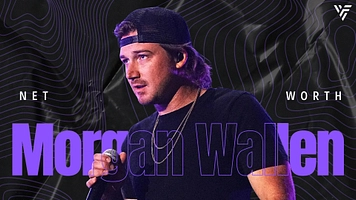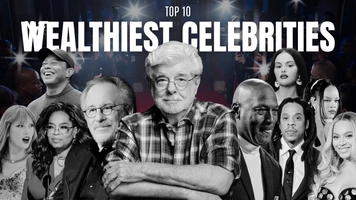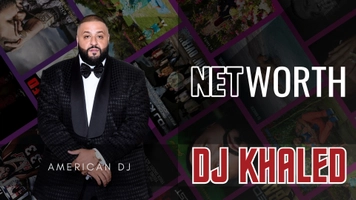Michael Jackson Net Worth
Share your thoughts on how Michael Jackson built his fortune through record-breaking music sales, business deals, and iconic assets.
Published Aug 28, 2025
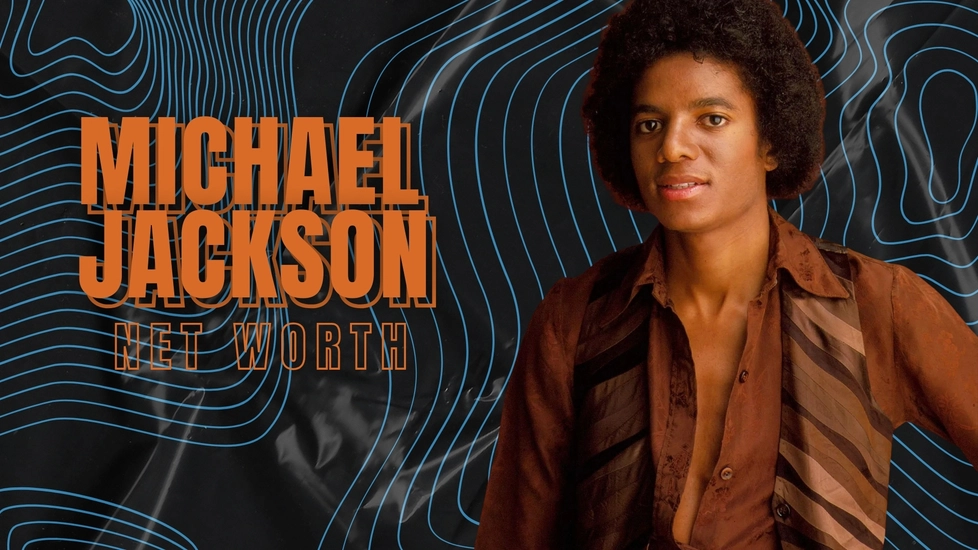
Michael Jackson was one of the most famous and successful pop stars the world has ever seen. Often called the “King of Pop,” he rose to fame as a child with the Jackson 5 and later became a global icon through his solo career, with record-breaking albums like Thriller, Bad, and Dangerous. Thriller alone remains the best-selling album of all time, with over 70 million copies sold worldwide. Throughout his career, Jackson earned billions in revenue from album sales, concerts, merchandise, endorsements, and music rights, most notably his acquisition of The Beatles' catalog, which turned into a financial masterstroke.
Beyond his musical legacy, Michael Jackson was also known for his philanthropic efforts. He supported over 30 charities and reportedly donated hundreds of millions of dollars during his lifetime, making him one of the most charitable celebrities of his era. Despite later financial troubles and controversies, his influence on pop culture, fashion, dance, and music remains unmatched. Today, Jackson is remembered alongside other legendary artists like Elvis Presley and Whitney Houston, not just for his performances, but also for the empire he built and the legacy he left behind.
What is Michael Jackson’s Net Worth?
At the time of his death on June 25, 2009, Michael Jackson was in severe financial distress, with his net worth reportedly at a negative $500 million.
Michael Jackson’s financial story is a tale of extreme wealth, lavish spending, and a massive posthumous comeback. During the 1980s and early 1990s, Jackson was one of the highest-paid entertainers in the world, earning between $50 million and $100 million annually from album sales, tours, endorsements, and merchandise. In 1989 alone, his earnings reached $125 million.
His immense success came with equally extravagant spending. He maintained a lifestyle that cost up to $50 million per year, fueled by purchases of luxury cars, exotic animals, artwork, jewelry, and the infamous Neverland Ranch, which cost $19.5 million to purchase and up to $10 million annually to maintain.
Jackson also paid large sums in legal settlements and personal arrangements, including $20 million to settle a molestation case, $12 million to Debbie Rowe, and millions more on failed film and music projects. To fund this lifestyle, Jackson took out large loans, most notably, $270 million using his 50% stake in the Sony/ATV catalog as collateral, and eventually racked up over $380 million in debt. By the time of his death, he was reportedly accruing $30 million in monthly interest and operational debt.
How did Michael Jackson's net worth recover after his death?
Ironically, Michael Jackson’s death marked a financial turning point. His estate quickly began paying off debts and maximizing the value of his brand and assets. In 2010, Sony signed a $250 million record deal for Jackson’s music, the largest in history at the time. A posthumous film, "This Is It," made from rehearsal footage, earned over $500 million globally.
The estate also capitalized on licensing deals, Broadway productions, and partnerships. Cirque du Soleil created two Las Vegas shows based on Jackson’s music, and a Broadway show, “MJ: The Musical,” grossed $85 million in ticket sales by 2023. His image and likeness continued to generate millions annually from merchandise, music videos, and brand deals.
In 2016, the estate earned a record-breaking $825 million, mostly from selling its remaining stake in Sony/ATV for $750 million. By 2024, the estate’s total posthumous earnings reached $3.3 billion, making Jackson the highest-earning deceased celebrity for most years since
2010. In 2023 alone, the estate earned $115 million, and Jackson's musical assets were valued at over $1.2 billion.
After Jackson's death, the IRS claimed his estate was worth over $1.1 billion, leading to a long legal battle. In 2021, the U.S. Tax Court ruled in favor of the estate, valuing it at $111.5 million, with Jackson’s name and likeness worth just $4 million. This decision drastically reduced the estate’s tax liability.
More than 15 years after his death, Michael Jackson’s estate is now worth over $2 billion. His strategic investment in music catalogs, especially the Beatles catalog, acquired for $47.5 million in 1984 and later merged into Sony/ATV, has become a cornerstone of this value. Today, the Sony/ATV catalog controls millions of songs and is valued between $2 to $4 billion.
What Businesses Does Michael Jackson Own or is a Part of?
Michael Jackson’s purchase of the ATV Music catalog in 1985 not only gave him control over The Beatles' songs but later became the foundation of Sony/ATV, the world’s largest music publishing company.
Michael Jackson was not only a legendary entertainer but also a remarkably savvy and ambitious businessman. Below is a detailed look at his businesses:
- Mijac Music: Founded by Michael Jackson in 1980, Mijac Music holds the rights to all of Jackson’s own compositions, along with catalogs he acquired, including works by Sly & the Family Stone, Ray Charles, Elvis Presley, Aretha Franklin, and more. Initially managed by Warner-Chappell, Mijac was valued at $75 million in 2005. After Jackson’s death in 2009, its value rose to an estimated $150 million within a year. In 2010, Jackson’s estate moved Mijac’s administration to Sony Music Entertainment under a 7-year, $250 million deal, which was renewed in 2018 for another 7 years at the same value.
- ATV Music Publishing / Sony/ATV (now Sony Music Publishing): In 1985, Michael Jackson bought ATV Music Publishing for $47.5 million, securing rights to over 4,000 songs, including much of the Beatles' catalog. A decade later, he merged it with Sony’s music publishing arm to form Sony/ATV in a 50/50 joint venture worth $600 million, creating one of the most powerful catalogs in the industry with songs by artists like Bob Dylan, Elvis Presley, Eminem, Taylor Swift, and Lady Gaga. After Jackson’s death, his estate sold its 50% stake in Sony/ATV to Sony for $750 million in 2016, while keeping other valuable music rights.
- Kingdom Entertainment: In 1996, Michael Jackson entered a 50/50 joint venture with Saudi Prince Al-Waleed bin Talal to form Kingdom Entertainment. The company aimed to create global family-friendly entertainment through films, books, music, theme parks, and hotels. It also acquired a 55% stake in Landmark Entertainment Group, known for designing themed attractions. However, aside from the short film Michael Jackson’s Ghosts, the venture produced few results. Jackson’s legal troubles and slow project development led to the partnership ending in the early 2000s.
- EMI Music Publishing Stake: As part of Sony/ATV’s 2012 acquisition of EMI Music Publishing, Jackson’s estate acquired a 10% stake in EMI’s catalog. In 2018, the estate sold that stake to Sony for approximately $287.5 million.
- Famous Music: In 2007, Jackson and Sony acquired Famous Music from Viacom for around $370 million. The deal included about 370,000 songs, giving them rights to music by artists like Eminem and others.
- Neverland Ranch: Michael Jackson purchased Neverland Ranch for $19.5 million, transforming it into a sprawling estate with amusement park features. In 2008, facing financial difficulties, he refinanced the property and transferred ownership to a joint venture called Sycamore Valley Ranch LLC. Investment firm Colony Capital acquired a majority stake, while Jackson reportedly retained around 87.5% ownership. Though this move helped prevent foreclosure, it also reduced his control over the property and placed its future in the hands of investors.
What Brands Does Michael Jackson Endorse?
Michael Jackson’s Pepsi deal was the biggest of its time and gave him full control, including a rule that he would never be shown holding a Pepsi can.
Michael Jackson’s brand endorsements were few but highly influential. Here’s a look at them:
- PepsiCo: Michael Jackson’s partnership with PepsiCo, which began in 1983, set a new benchmark in celebrity endorsements. The $5 million deal, the largest of its kind at the time, coincided with the height of Jackson’s “Thriller” success and positioned him as the face of Pepsi’s “New Generation” campaign. It included high-profile commercials, such as a reimagined “Billie Jean” jingle, and sponsorship of the Jacksons’ “Victory Tour.” Despite a 1984 accident during filming that left Jackson with burn injuries (for which Pepsi paid a $1.5 million settlement he donated to a burn center), the collaboration continued. In 1987-88, Pepsi paid Jackson up to $12 million to support his “Bad” tour in over 20 countries. Another international deal in 1992 linked Pepsi to Jackson’s “Dangerous” tour and his Heal the World Foundation. Over ten years, Michael Jackson starred in eight major Pepsi commercials, and the brand partnership drove significant increases in Pepsi’s market share, especially among youth.
- LA Gear: In the early 1990s, Michael Jackson endorsed LA Gear athletic shoes, promoting both men's and women’s lines. He was among the first non-athletes to lead a major footwear campaign. In 1992, LA Gear sued Jackson for failing to provide the required ad content. The case was settled in 1994.
- Suzuki: In the early 1990s, Michael Jackson endorsed Suzuki’s “Love” scooter campaign in Japan through a reported $16 million deal. The commercials featured Jackson dancing next to scooters in a stylized, slow-motion format. Though unusual in tone, the ads were widely seen in Japan and remain a notable part of his advertising history in Asia.
- Esonic: In 1997, Jackson became the global spokesman for Esonic’s DiscBaby CD and DVD player under a three-year contract. He reportedly signed on after testing the product during his HIStory tour in Taiwan in 1996. The ads featured him alongside young fans, including Omer Bhatti and the Ma twins.
- Sony: Jackson often worked with Sony to promote its music and electronics. He appeared in global campaigns and helped boost the brand’s image during the 1990s and 2000s.
Assets and Lifestyle of Michael Jackson
Michael Jackson’s Real Estate Portfolio
Michael Jackson owned and rented several high-value properties during his life, including Neverland Ranch and homes in California, Las Vegas, and New York. Let’s take a detailed look at them:
- Neverland Ranch: Michael Jackson purchased Neverland Ranch (later known as Sycamore Valley Ranch) around 1988 for approximately $19.5 million. The 2,700-acre estate featured a private amusement park with rides, a zoo with exotic animals, a 50-seat movie theater, multiple guest houses, a pool house, and landscaped gardens and lakes. Due to financial difficulties, Jackson avoided foreclosure in 2008 by entering a joint venture with Colony Capital LLC, giving up majority control while retaining a stake. After his death, the property was renamed and listed for $100 million in 2015, eventually selling in 2020 to billionaire Ron Burkle for $22 million.
- Hayvenhurst Estate: The Hayvenhurst Estate in Encino, Los Angeles, was purchased by Michael Jackson’s father in 1971 for the Jackson family. It served as Michael’s home during his early career and was where he worked on major projects like Thriller. The property includes a multi-bedroom house, a private movie theater, and unique touches such as a puppet and candy shop-style facade. In recent years, the estate has remained under Jackson family ownership and was occupied by Michael’s daughter.
- Thriller Villa: Thriller Villa in Las Vegas, Nevada, is a large Spanish-style estate covering nearly 2,400 square meters. It features 10 bedrooms, a 74-seat chapel, and ornate architectural elements. Although Michael Jackson did not own the property, he lived there between 2007 and 2009. The villa was owned by supermarket mogul Aner Iglesias and was listed for sale in 2016 for $9.5 million.
- Bel-Air/Holmby Hills Mansion: The Bel-Air/Holmby Hills Mansion in Los Angeles was leased by Michael Jackson in early 2009 for $100,000 per month from Hubert Guez, linked to Ed Hardy. The 17,000-square-foot estate included 7 bedrooms, 13 bathrooms, a theater, spa, wine cellar, guesthouse, elevator, pool, and more, spread over roughly 1.3 acres. Jackson lived there until his death in June 2009. The home was later sold for $18.1 million, reduced from its original $38 million asking price.
- Trump Tower: Michael Jackson briefly lived in a luxury apartment in Trump Tower in 1994, a few floors below President Donald Trump’s penthouse. The four-bedroom, four-and-a-half-bathroom unit featured marble floors, a wood-paneled library, and floor-to-ceiling windows. Reports suggest Jackson rented it for $110,000 per month after secretly marrying Lisa Marie Presley.
- South Monte Cristo Way: In 2006, Michael Jackson rented this 17,000-square-foot mansion in Las Vegas for $50,000 per month. Situated in the exclusive Lakes neighborhood, just 15 minutes from the Strip, the home features eight bedrooms, 7.5 bathrooms, a 2,500-square-foot master suite, an indoor fountain, curved and spiral staircases, a pool, spa, outdoor kitchen, and tennis court. In 2025, it was listed for $11 million.
Vehicles Owned By Michael Jackson Over The Years
Michael Jackson owned and used several unique vehicles throughout his life, often favoring custom-built and luxury models. Here’s a look at some of the vehicles he owned:
- Rolls-Royce Silver Seraph: Michael Jackson owned a custom-designed Rolls-Royce Silver Seraph, one of only 1,570 ever made. He personally styled the car with 24-carat gold and crystal details, taking inspiration from the Palace of Versailles. Though it was set to be auctioned in April 2009, a legal dispute halted the sale. After his death, the car was considered priceless due to its unique design and connection to Jackson.
- 1954 Cadillac Fleetwood: Michael’s prized classic was a 1954 Cadillac Fleetwood, a true Hollywood icon. This special car famously chauffeured Jessica Tandy in the 1989 film Driving Miss Daisy, giving it a unique place in both automotive and film history.
- 1985 Mercedes-Benz 500 SEL: Michael Jackson’s Mercedes-Benz 500 SEL was one of his favorite cars and a regular part of his daily life. He often drove it between his Encino home and Los Angeles studio, making it one of his longest-kept vehicles. The car gained extra attention when Madonna was once seen driving Jackson in it, an iconic moment that made headlines and showed how even his go-to ride had star power.
- 1996 Seagrave Pumper Fire Truck: Michael Jackson owned a fully functional 1996 Seagrave Pumper Fire Truck, custom-painted in bright red with gold trim and his “MJ” logo. Originally built for the Brattain Fire Department in Indiana, it featured a 75-foot ladder, 1,500-gallon-per-minute pump, and 500-gallon water tank. Jackson bought it in 1999 for $360,000 at a charity auction and used it at Neverland Ranch for entertaining sick children. After his death, the fire truck was sold at a Las Vegas auction for $450,000.
Michael Jackson’s car collection reflected his love for luxury, style, and one-of-a-kind designs, just like the man himself.
What's Next For Michael Jackson?
Michael Jackson’s legacy continues to grow with several exciting projects from his estate. A biopic titled Michael, starring his nephew Jaafar Jackson, is set to release in 2025. The estate is also working on new merchandise, digital content, and music releases, including remastered songs and previously unreleased tracks. MJ: The Musical remains popular on Broadway and is set to tour globally. More experiences, like exhibits and virtual tributes, are also being planned to keep his memory alive and connect with a new generation of fans.
Also Read
FAQs
Did Michael Jackson own The Beatles' music?
Yes. In 1985, he bought the ATV Music catalog, which included over 250 Beatles songs. It was one of the smartest business moves in music history.
Who controls Michael Jackson’s finances now?
His estate is managed by co-executors John Branca and John McClain, who handle business deals and protect his legacy.
Did Michael Jackson make money from movies?
He earned some money through music in films and his Moonwalker project, but most of his fortune came from music and touring.
Write a comment
Comments
No Comments Yet


